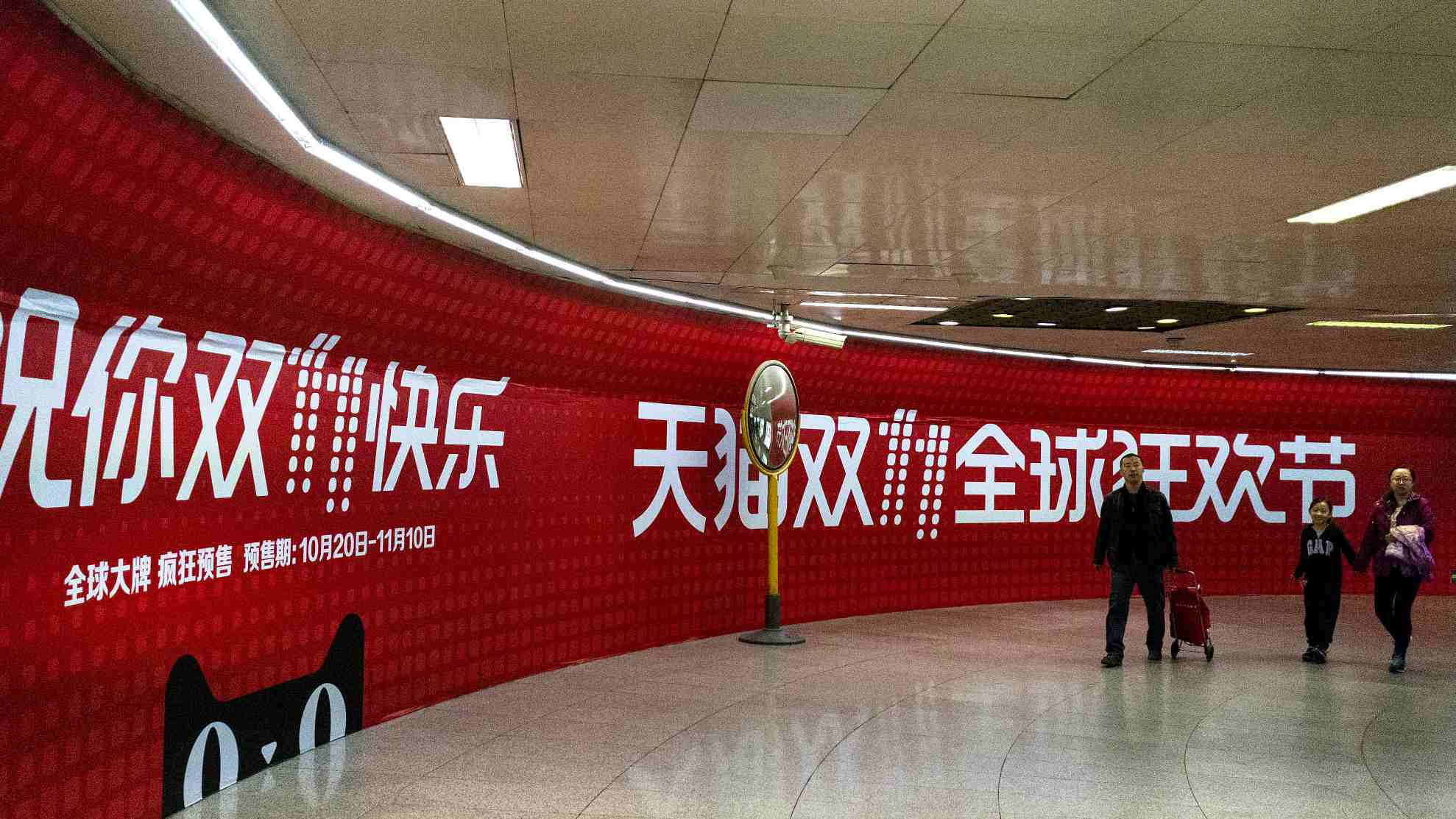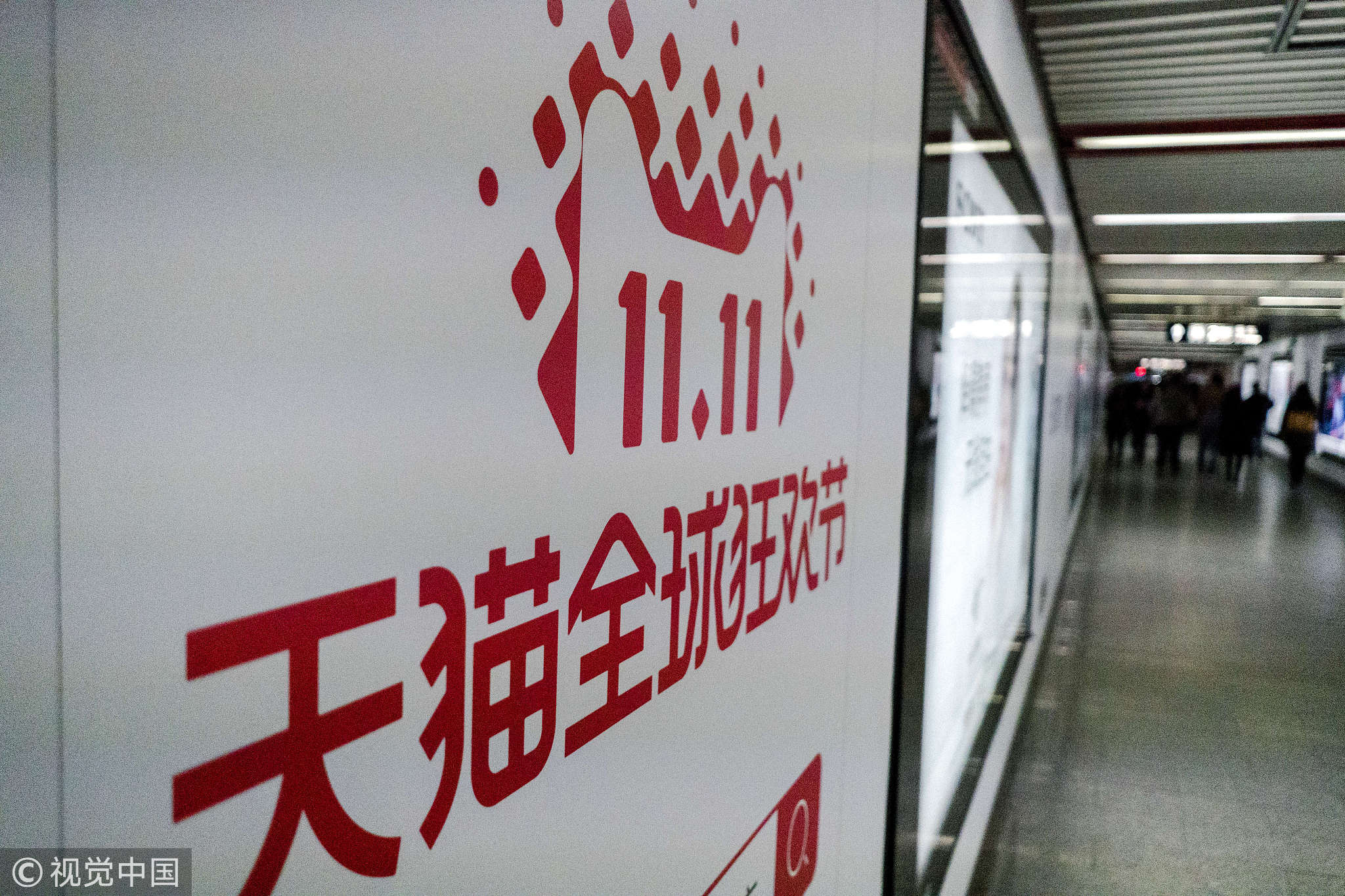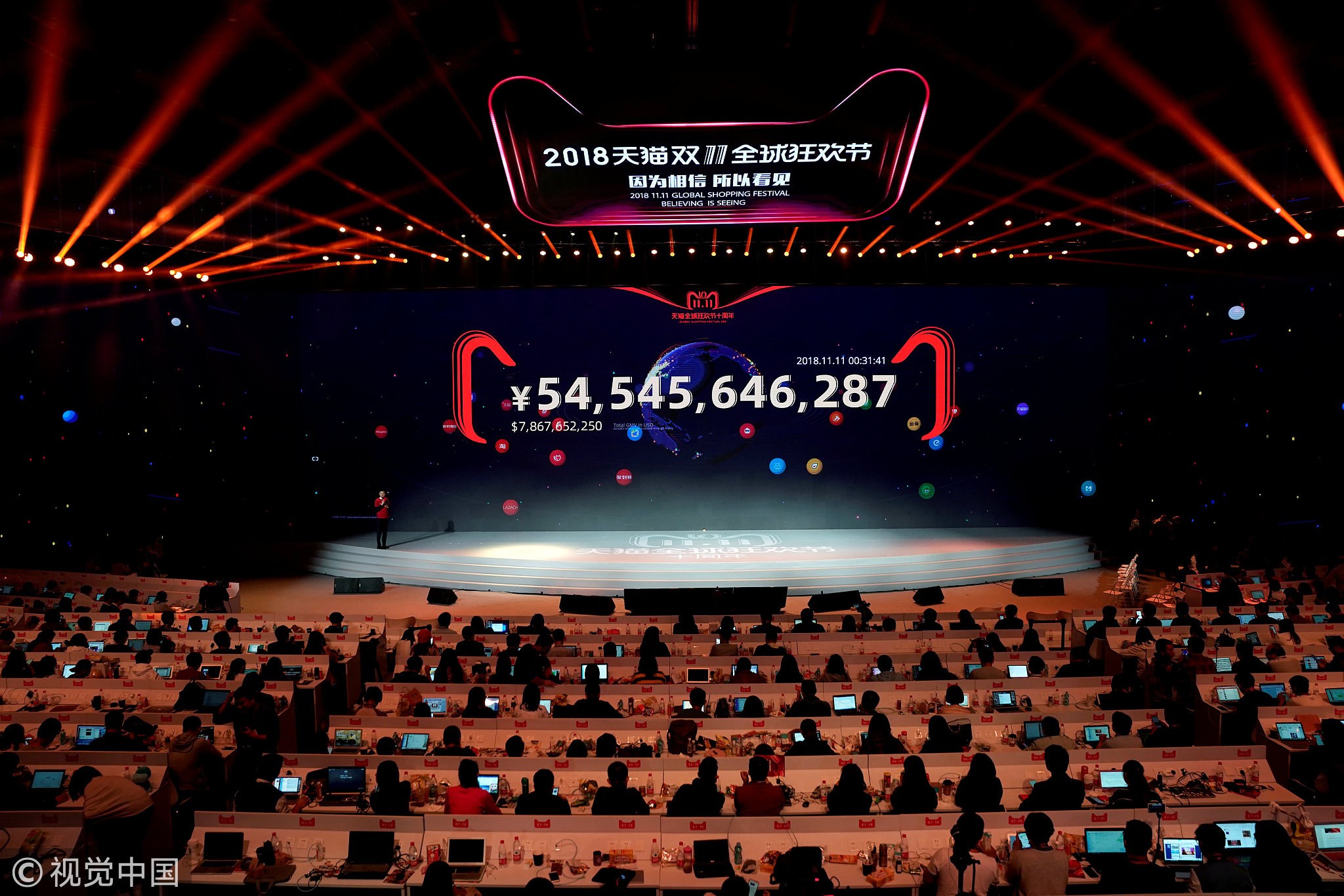
Opinions
07:48, 13-Nov-2018
Opinion: Why 'Double 11' is good for international brands
Updated
07:14, 16-Nov-2018
CGTN's Yang Chuchu

Editor's Note: The article is based on an interview with Benjamin Chiao, a professor from the Paris School of Business. The article reflects the author's opinion, and not necessarily the views of CGTN.
The once-in-a-year shopping extravaganza, called Singles' Day or Double 11, wrapped up on November 11, racking up a total transaction volume of about 213.5 billion yuan (30.7 billion US dollars) in 24 hours.
This year was the 10th shopping extravaganza. And the transaction volume this year, for the first time, surpassed 200 billion yuan (28.7 billion US dollars), with the transaction volume of last year reaching 168.2 billion yuan (24.1 billion US dollars).

Huge Tmall advertisement of Double 11, posted in the subway. /VCG Photo
Huge Tmall advertisement of Double 11, posted in the subway. /VCG Photo
An outstanding characteristic of this year's shopping festival was the active participation and rising sales of overseas brands. It seems that this event is not only an event for China but also one for the world.
This year, Alibaba cooperated with 200 countries and regions, and over 10,000 American brands joined participated in event. Besides, Tmall Global, an import platform of Alibaba, has introduced nearly 500 new global brands, such as the American sportswear and footwear retailer Foot Locker in 2018.
"It is not just China selling to or buying from the overseas. It is about trade about 200 countries who participated in yesterday, using the Chinese e-platform, such as JD, Taobao and Tmall. And within China, about 40 percent of brands traded are international," said Benjamin Chiao, a professor from the Paris School of Business.
Alibaba also hosted its first Double 11 shopping festival across six countries in Singapore, Malaysia, Thailand, Indonesia, the Philippines and Vietnam.

A screen shows the value of goods being transacted at Alibaba Group's 11.11 Singles' Day global shopping festival in Shanghai, China, November 11, 2018. /VCG Photo
A screen shows the value of goods being transacted at Alibaba Group's 11.11 Singles' Day global shopping festival in Shanghai, China, November 11, 2018. /VCG Photo
The future of the trade, in the view of Chiao, is without boundaries, and people can buy whatever they want, whenever and from wherever.
In the past, when consumers headed to online platforms, they usually focused more on prices and heavy discounts, not on brands. However, now they have shifted their eyes to brands and high quality.
The better taste and increased wealth of people are the reasons behind , according to Chiao. More than 50 percent of the people who participated in the event are in their 20s, and they are better educated, looking for quality.
Besides, Chinese people's per capita GDP has increased largely, from 200 US dollars to around 9,000 US dollars. In first-tier cities such as Beijing and Shanghai, people's income are almost the same with those in developed countries.
With more participation within China and an increasing number of international brands, the shopping festival shows to the world the vitality of the Chinese market, and expands its influence to the international community.
(If you want to contribute and have specific expertise, contact us at opinions@cgtn.com.)

SITEMAP
Copyright © 2018 CGTN. Beijing ICP prepared NO.16065310-3
Copyright © 2018 CGTN. Beijing ICP prepared NO.16065310-3